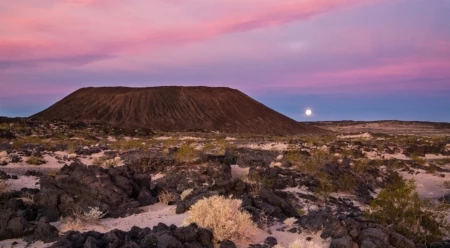New National Monuments Inspire Visitors and Bolster Communities
When I first moved to Los Angeles, my friends took me on a camping trip to Joshua Tree National Park. I had never been in a desert landscape and had no idea what to expect. I thought I’d find it boring. But I can only describe that first trip as a spiritual experience. I’d been meditating for years in some of the most beautiful places in the world, but nothing compared to going deep into the desert, surrounded by prehistoric rock formations, Joshua trees, abundant wildlife and stripped down, elemental landscapes. I thought then how glad I was that Joshua Tree was a national park and I hoped the surrounding landscape would be found worthy of protection and preservation for all generations to come.
Now, President Obama has officially recognized new California desert national monuments—known as Mojave Trails, Sand to Snow and Castle Mountains—totaling 1.8 million acres. These lands signify and solidify this region’s place as one of America’s truly remarkable—and now truly valued—landscapes. That’s good news for all of us; the people who look to these lands for recreation and relaxation; the desert towns that will develop into gateway communities for these national landmarks; and the wildlife that migrate through and live in the desert.
The tool that made this historic achievement possible is the Antiquities Act of 1906 which was passed by Congress and signed into law by President Teddy Roosevelt in response to the destruction of Native American cultural sites in New Mexico and Colorado.More than 100 years later, threats to the California desert region underscore the continued relevance of this law and the vital role it plays in protecting unique and remarkable wild places. California’s Mojave Desert is a spectacular area rich in cultural, historic and natural wonders. But it’s situated precariously between two vibrant and expansive metropolitan areas—Los Angeles and Las Vegas. The pressures of population growth and natural resource development would have doomed the desert if citizens, businesses and community and elected leaders hadn’t taken steps to ensure its survival.
For those of us who work at Patagonia, the outdoors experience is both a livelihood and a calling. The widespread availability of public land, like these new national monuments, means our customers have places to play, and that’s good for business. But we also want our co-workers to live healthy, active lives outside of work. The recreation opportunities available on public lands, like national monuments, wilderness areas, parks and preserves, are unrivaled. Designation of the Mojave Desert national monuments means our children and grandchildren will have places to enjoy and explore, just as we do today.
We at Patagonia and throughout the outdoor industry are proud to have supported the years-long effort to protect Mojave Trails, Sand to Snow and Castle Mountains. Preserving the natural features of this wonderful state inspires people from all over the world to visit, as well as offering locals more places to enjoy. Many studies across the West are finding that proximity to protected lands attracts new residents and businesses. The result is a boon to business, jobs and incomes in desert communities. And protecting critical ecosystems is an even greater imperative in the midst of a changing climate.
The fact that this scenic backdrop is now protected means the world to me. The desert landscape over the years has been my touchstone, a place to find a deep sense of knowing, a respect for nature and how it feeds the human spirit. Over the now decades of my trips to explore this landscape, I’ve come to appreciate all the nuances, the rare glimpses of bighorn sheep, the petroglyphs, tarantulas, jackrabbits, tortoises, the creosote smell after the rain, the howls of coyote packs. I have come to love this place; it is a part of me.
So I say thank you to the many thousands of voices that called for this action, and thank you President Obama—who has now protected more lands and waters than any other president in history—for listening, and leading.

